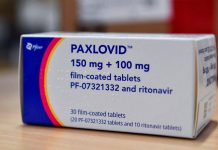On Monday, U.S. Rep. John Curtis (R-UT) and Rep. Angie Craig (D-MN) introduced a bill to reform the Food & Drug Administration (FDA) review and approval process for generic drugs, according to Curtis’ website.
Eventually, the bipartisan bill, called the Modernizing Therapeutic Equivalence Rating Determination Act, will increase generic drug availability and competition in the market, driving down high prescription drug costs.
Sen. Cassidy (R-LA) and Sen. Smith (D-MN) sponsor companion legislation in the Senate.
Rep. Curtis said, “I hear frequently from Utahns about the challenges that high out-of-pocket costs create to accessing lifesaving prescription drugs. This bill helps to address this problem. I am proud of this bipartisan effort to speed up the approval process for generic drugs.”
“Every year, millions of Americans all across the country struggle to fill prescriptions because they simply can’t afford the high prices of many name-brand drugs,” said Rep. Craig.
“The United States must take immediate action to remedy this challenge by ensuring that generics are readily available for hardworking Americans,” she added, “which will help to lower drug costs and create competition in the pharmaceutical industry.”
The Modernizing Therapeutic Equivalence Rating Determination Act will require the FDA to assign therapeutic equivalence ratings for 505(b)(2) applications at the applicant’s request, as it does for ANDAs (Abbreviated New Drug Applications).
This process is used to approve new drugs while leveraging certain data from an already approved drug, according to Curtis’ website.
The manufacturer must generate enough data, including clinical data, to support the differences between generic and its brand-name counterpart.
At the same time, a therapeutic equivalence rating is necessary to trigger automatic substitution at the pharmacy level and thus critical to driving competition.
The 505(b)(2) process is technically a new drug pathway so the statute does not require FDA to assign a therapeutic equivalence rating.
Sponsors can request it via the citizen petition process, but this can take significant time, per the website.
For more information, visits John Curtis’s website. He proudly represents Utah’s 3rd Congressional District. He has worked on 11 pieces of legislation that were signed into law, ranging in diverse topics such as better managing public lands, combatting human trafficking, supporting small businesses, and more.























